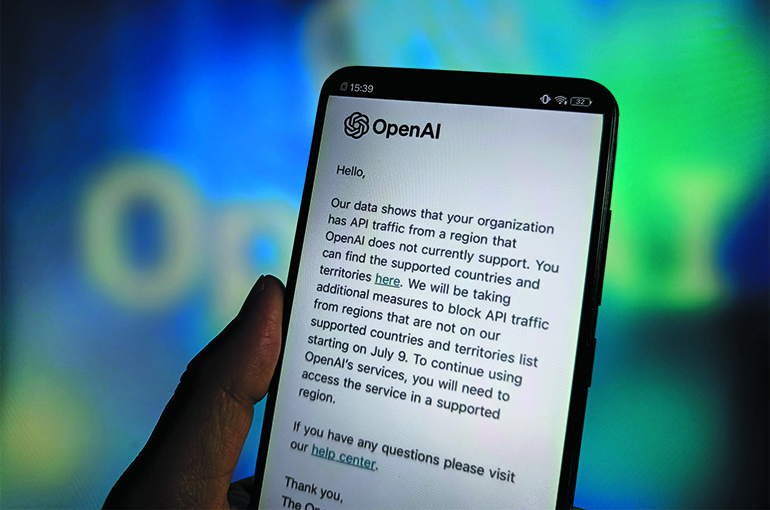 Alibaba, Baidu, Other Chinese AI Firms Rush to Fill Gap Left by ChatGPT in China
Alibaba, Baidu, Other Chinese AI Firms Rush to Fill Gap Left by ChatGPT in China(Yicai) June 26 -- Chinese tech firms, including Alibaba Group Holding and Baidu, are quickly seizing the opportunity to lure new clients after OpenAI told local developers it would stop allowing them to integrate ChatGPT with their mobile applications in China's mainland, Hong Kong, and Macau in less than two weeks.
Alibaba Cloud will provide a more cost-effective large language model alternative to ChatGPT for users in China, throwing in 22 million free tokens and exclusive migration services for app developers, the Hangzhou-based firm said yesterday. The cloud computing arm of Alibaba launched its own LLM, Tongyi Qianwen, last April, less than five months after the American trailblazer.
Some Chinese developers said yesterday that OpenAI sent an email to them to say that it would block application programming interface traffic from certain regions from July 9. The list of supported areas includes 188 countries and regions but not China.
After the news, nearly 10 other local LLM developers, including Beijing-based Baidu, the developer of Ernie Bot, Hefei-based iFlytek, the creator of SparkDesk, and Moonshot Al, the startup behind Kimi Chat, quickly announced that they would offer migration services to ChatGPT users at a discount.
OpenAI's API exit from China may not be a bad thing as it should only accelerate the growth of the local LLM industry, Zhou Hongyi, chairman of 360 Security Technology, said on Weibo today. Chinese LLMs have gradually been narrowing their gap with ChatGPT, he added. The antivirus software giant released its ChatGPT-like 360 Smart Brain last March.
The expected departure of the foreign rival sparked some stock price surges today. iFlytek [SHE: 002230] ended 7.8 percent higher at CNY44.76 (USD6), and 360 Security Technology [SHA: 600360] gained 6.9 percent to CNY7.91 (USD1).
Editor: Emmi Laine